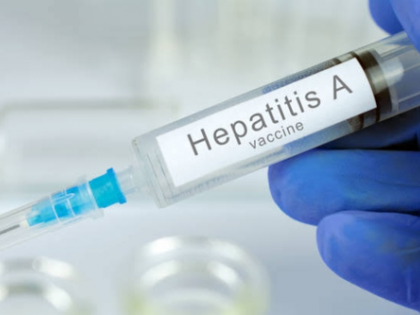Explained: What is Hepatitis A that is causing an outbreak in Kerala
By IANS | Published: May 17, 2024 04:54 PM2024-05-17T16:54:21+5:302024-05-17T16:55:07+5:30
New Delhi, May 17 Vaccination, hygiene, and a balanced diet are the major ways to prevent hepatitis A ...

Explained: What is Hepatitis A that is causing an outbreak in Kerala
New Delhi, May 17 Vaccination, hygiene, and a balanced diet are the major ways to prevent hepatitis A -- a highly contagious liver infection caused by the hepatitis A virus (HAV) --, said doctors on Friday amid reports of a severe outbreak in Kerala.
Hepatitis A is spread via ingestion of contaminated food and water or through direct contact with an infectious person.
Hepatitis A outbreak in Kerala
Kerala's Malappuram district has in the last few days seen a massive outbreak of Hepatitis A, with reportedly about 8,000 cases and 12 deaths.
Kerala has continually been witnessing such outbreaks since 2018. As per the government data, the state has witnessed 1,977 confirmed cases and 12 deaths since January this year.
In addition, about 5,536 suspected Hepatitis cases have also been reported, and 15 are suspected to have died due to the virus.
"The increase in temperature and decrease in rainfall and decreasing surface water has impacted drinking water quality, heightening the risk of waterborne illnesses like Hepatitis A, typhoid and gastroenteritis which spreads through contaminated water and food, particularly when faecal matter pollutes water sources," Lorance Peter, Director - Gastroenterology & Hepatology, Sakra World Hospital Bengaluru, told IANS.
Meanwhile, Kerala Health Minister Veena George has reportedly put four districts -- Kozhikode, Malappuram, Thrissur, and Ernakulam -- on alert as a maximum number of cases have been reported from here.
Naveen Ganjoo, Senior Consultant - Hepatology & Integrated Liver Care, Aster RV Hospital, Bengaluru, said that the affected population in Kerala is mainly adults as the state is typically good in sanitation so they have managed to prevent Hepatitis A in children.
"It has been seen that at this age Hepatitis A is more dangerous. Also, a different strain particular to geography may be in play as there is also renal impairment with liver dysfunction which is the main organ affected," Naveen told IANS.
Hepatitis A and its implications
Hepatitis A is a highly contagious liver infection. But unlike Hepatitis B and C, it does not lead to chronic liver disease but can cause severe symptoms and, in rare cases, lead to liver failure.
Symptoms often include fatigue, nausea, abdominal pain, loss of appetite, and jaundice. Most people recover fully within a few weeks to months, but the illness can cause severe weakness.
Especially in older adults or those with underlying liver conditions, it can cause acute liver failure, a life-threatening condition,
"Hepatitis A spreads primarily through the faecal-oral route, often via contaminated food or water. Common sources include consuming raw or undercooked food, drinking contaminated water or ice, eating food prepared by someone with the virus who has not practised proper hand hygiene, and close personal contact with an infected person or caring for someone who is ill," said Lokesh L V, Lead Consultant Gastroenterologist, SPARSH Hospital, Bengaluru.
Lorance explained that jaundice is a common symptom of Hepatitis, and appears well after the virus has been present in stool for up to two weeks and can persist beyond the resolution of symptoms, thereby contributing to silent ongoing contamination.
Maintaining liver health and nutrition during a hepatitis attack is paramount, necessitating lifestyle adjustments such as no alcohol intake and refraining from smoking.
"A balanced diet during this time should consist of ample whole grains, fruits, and vegetables packed with essential vitamins and fibre. Healthy fats like Medium-chain triglyceride (MCT) oil and olive oil can help reduce inflammation, while lean proteins from poultry, fish, and legumes are beneficial. Despite dietary constraints, there are plenty of appetising and nutritious food choices available, with an emphasis on fresh, seasonal produce to boost overall nutritional intake," Lorance said.
The expert also stressed the need to take the vaccination drive seriously "to prevent this epidemic as it is easily spread in a larger population which can be detrimental and increase massive burden on healthcare."
"Hepatitis A vaccine is safe, effective, and recommended for all children and adults who are at risk," Lokesh said.
He also called for regular handwashing with soap and water, cooking food thoroughly, and drinking bottled or boiled water.
Disclaimer: This post has been auto-published from an agency feed without any modifications to the text and has not been reviewed by an editor
Open in app